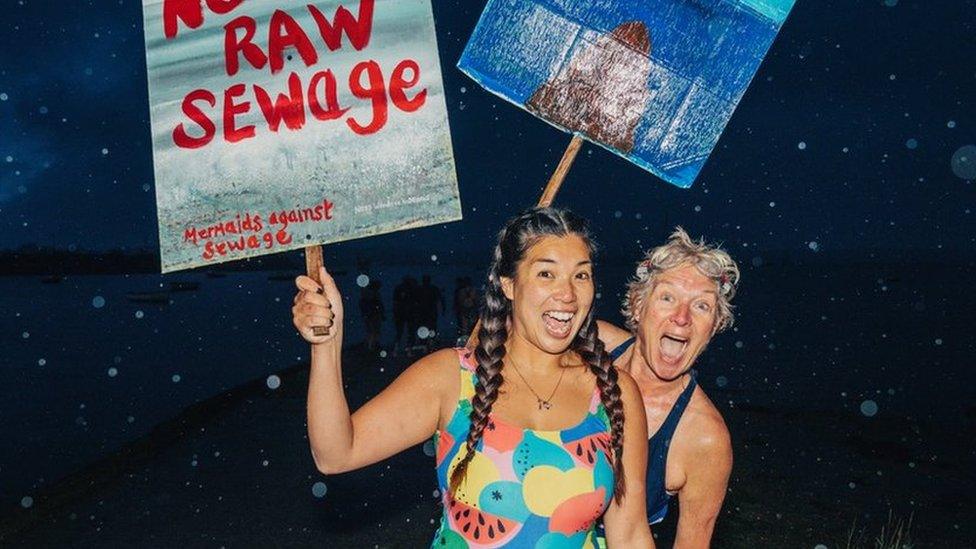Protests over water firms dumping sewage in rivers
- Published
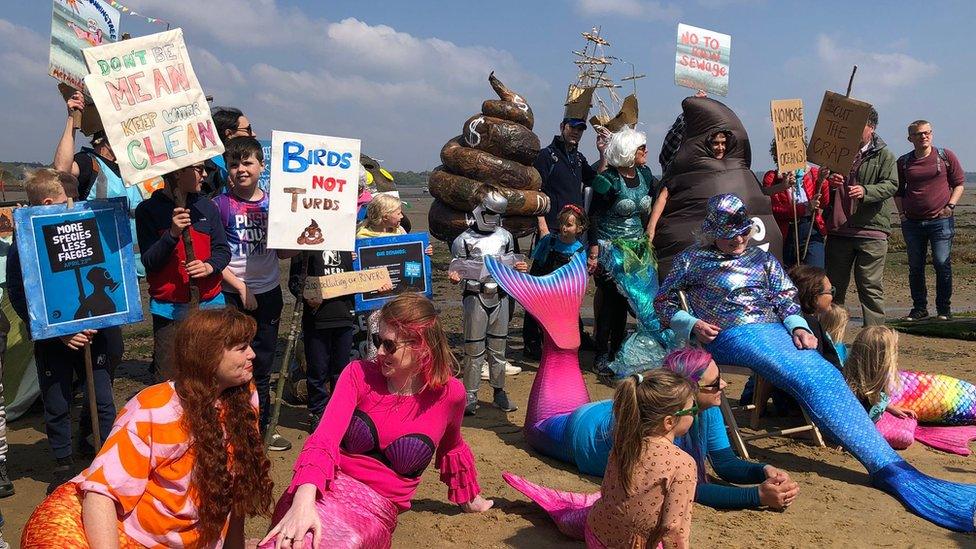
Anglian Water admitted dumping raw sewage 389 times last year for more than 4,000 hours in the River Stour
Thousands of people have taken to rivers and waterways to protest against water companies dumping sewage in them.
The day of action, organised by the charity Surfers Against Sewage, involved 12 protests across the UK.
In Manningtree, Essex, wild swimmers marched and dressed up in mermaid and giant poo costumes by the River Stour.
Anglian Water, which admitted it dumped sewage in the river 389 times last year, said it was investing millions of pounds to rectify the "historic issue".
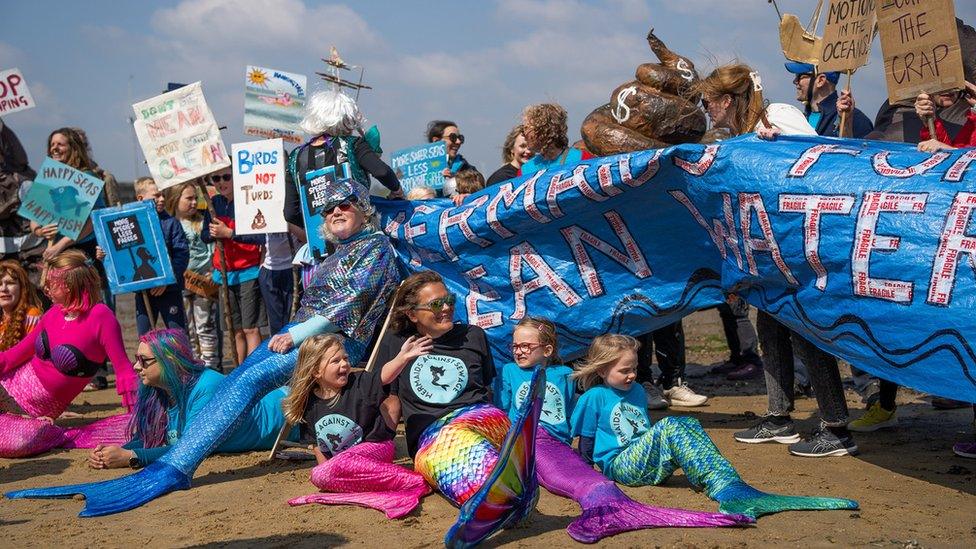
People protesting in Manningtree say they love swimming in the river there but they are worried about how clean it is

Hundreds turned up to protest against Southern Water in Worthing

Campaigners also gathered on Fistral Beach, Newquay as part of the action coordinated by Surfers Against Sewage
Catherine Arnold, a nutritional therapist who helped organised the Manningtree protest, said: "We are so lucky to live in an area of outstanding natural beauty and we need to protect it. We don't release sewage into our gardens, why would we release it into our rivers?"
Water companies discharged raw sewage into British rivers 372,533 times last year, for a total of more than 2.6m hours, according to data from the Environment Agency.
Untreated sewage is only meant to be discharged into rivers in exceptional circumstances, for example, during heavy rainfall.
Allow X content?
This article contains content provided by X. We ask for your permission before anything is loaded, as they may be using cookies and other technologies. You may want to read X’s cookie policy, external and privacy policy, external before accepting. To view this content choose ‘accept and continue’.
Each protest targeted a separate water company:
•Edinburgh - Scottish Water
•Tynemouth - Northumbrian Water
•Belfast - Northern Ireland Water
•Scarborough - Yorkshire Water
•Bath - Wessex Water
•Manningtree, Essex - Anglian Water
•Worthing - Southern Water
•Newquay - South West Water
•Abergavenny - Welsh Water
•Victoria Embankment Garden, London - Thames Water
•Stoke Bardolph, Nottinghamshire - Severn Trent
•New Brighton Beach, Wirral - United Utilities
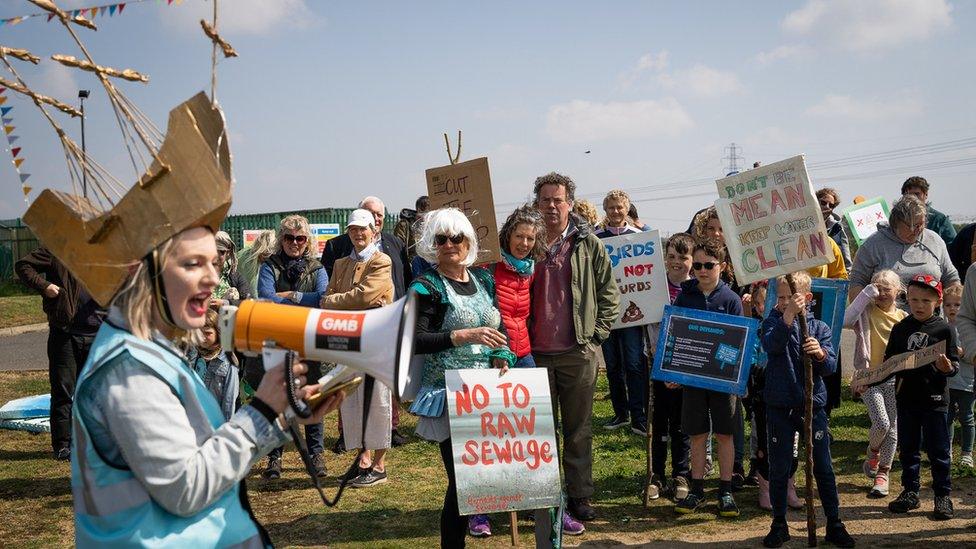
Helen Whitehead helped organise the Manningtree protest to help protect the River Stour where she regularly swims
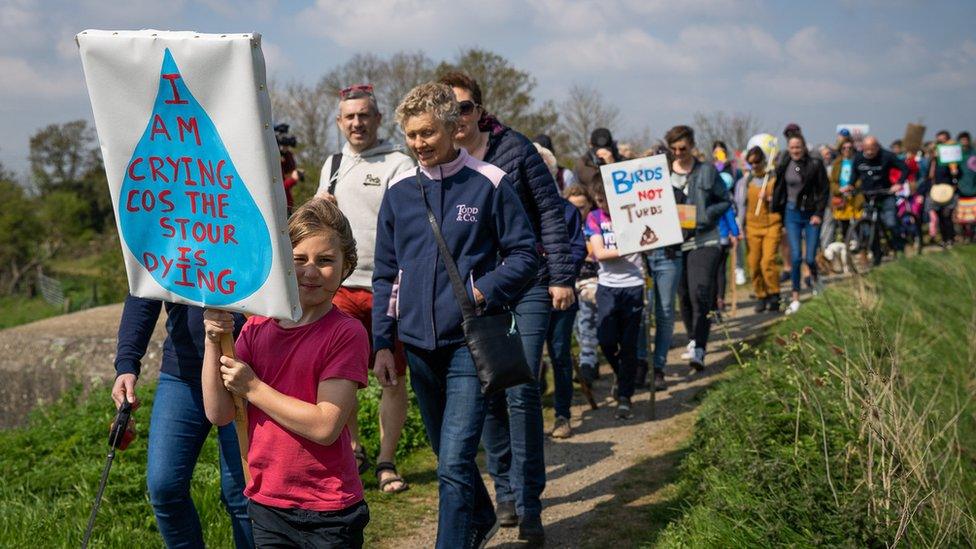
A river sample in Manningtree showed high levels of E.coli
Nic Bury, professor of environmental toxicology at the University of Suffolk, is running a project looking at E. coli counts in rivers. A sample he took in Manningtree showed an E. coli count of 1000cfu/100ml. The threshold for good bathing water is less than 500cfu/100ml.
He said: "The situation is quite bad. Every time I sample in the river I'm shocked about the lack of biodiversity so I'm very concerned about it."
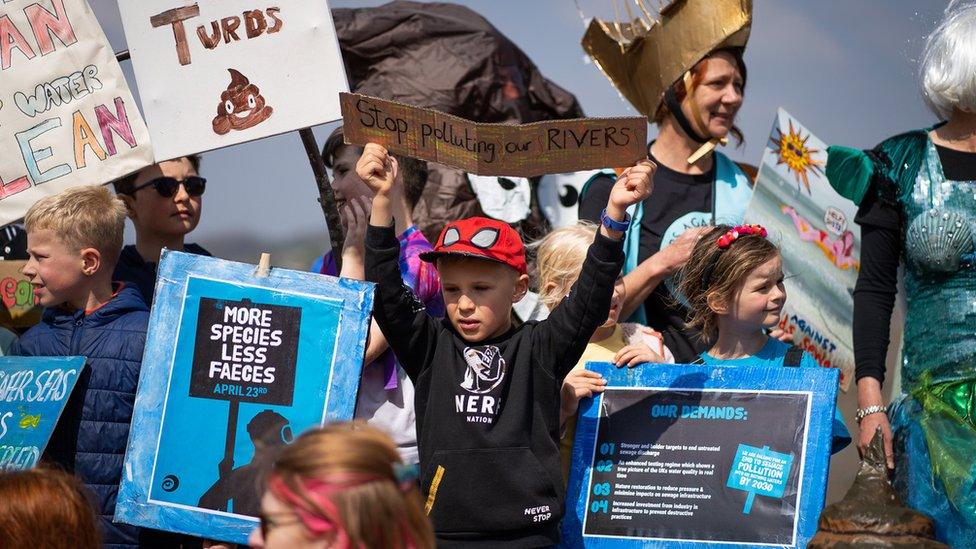
Lots of children who enjoy swimming in the River Stour got involved in the Manningtree protest
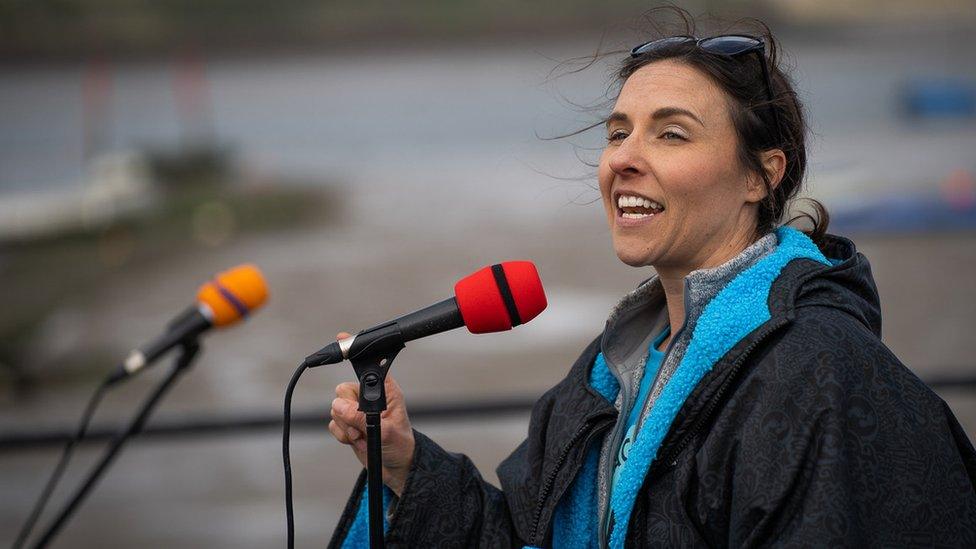
Campaigner Anna Helm Baxter organised the Manningtree protest amid concerns about sewage in the River Stour
Campaigner Anna Helm Baxter, who organised the Manningtree protest, said the situation was "completely unacceptable".
"It's essential to keep up the pressure on the water companies and the government, who need to not only create stronger policies, and shorter timelines, but also make sure that they enforce their own rules," she added.

Manningtree has a wild swimming group with more than 100 members who are very passionate about water quality
'Riddled with sewage'
The government announced a plan to overhaul the sewage system last month.
Hugo Tagholm, CEO of Surfers Against Sewage, said it did not go far enough. The charity is calling for an end to sewage discharge into British bathing waters by 2030.
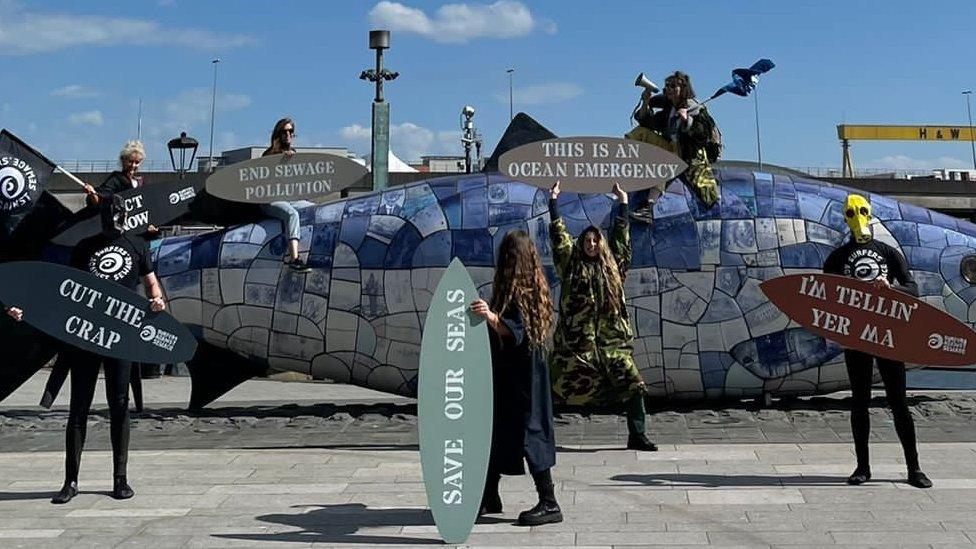
In Belfast they protested against the Northern Ireland Water company
He said British rivers had become pollution superhighways "riddled with sewage, chemicals and filth".
"The river and beach-loving public have had enough," he said. "Water companies must make urgent investments, funded from their vast profits, to turn off their filthy pollution tap and restore our rivers and seas."
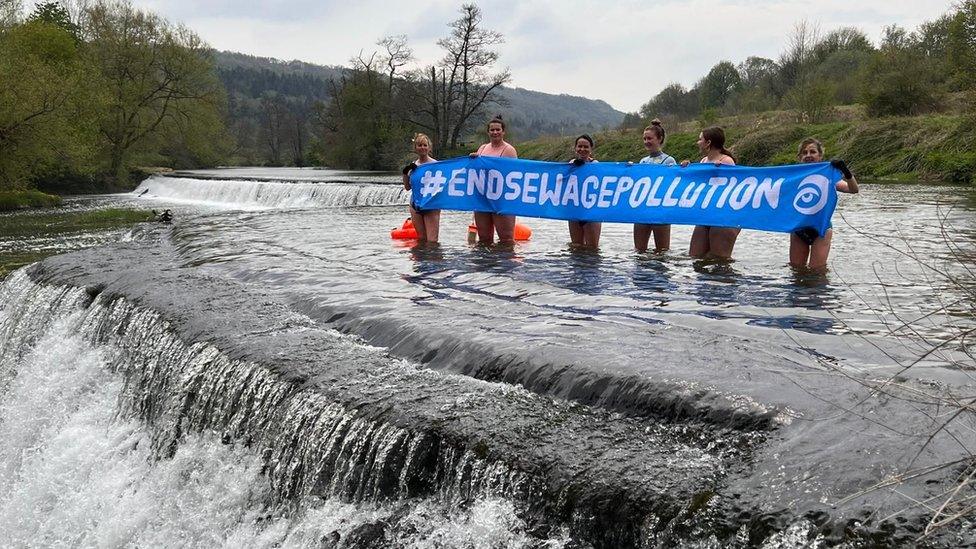
Protesters in the Warleigh Weir, near Bath campaigned against Wessex Water
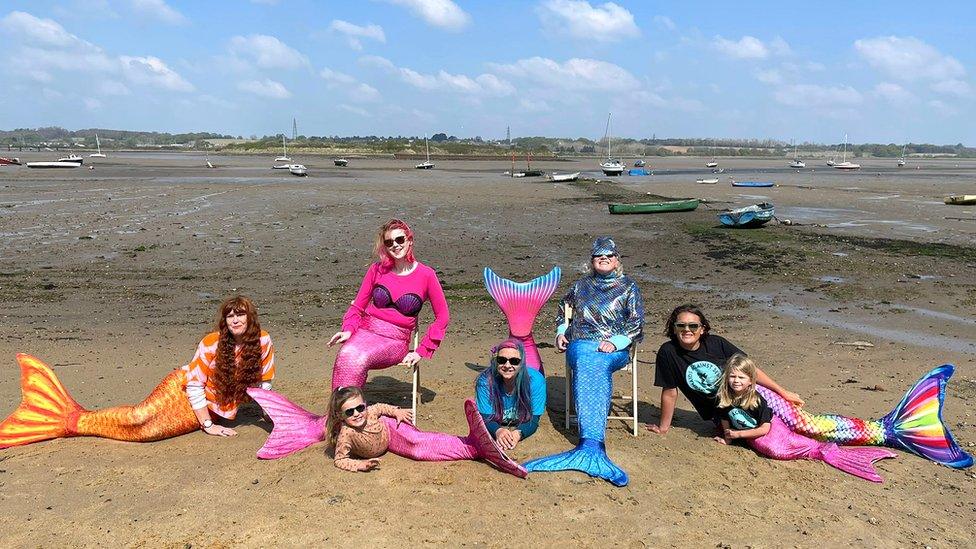
Wild swimmers in Manningtree dressed up as mermaids to protest against Anglian Water
An Anglian Water spokesperson said: "Data from our 2021 monitoring programme tells us our performance continues to improve, and the increasing visibility we have of combined sewer overflow (CSO) activity gives us even more opportunities to act faster in the areas where we can have most environmental benefit.
"But we agree that CSOs are no longer an acceptable way of dealing with flooding and overloaded sewers and we need to do more."
- Published31 March 2022
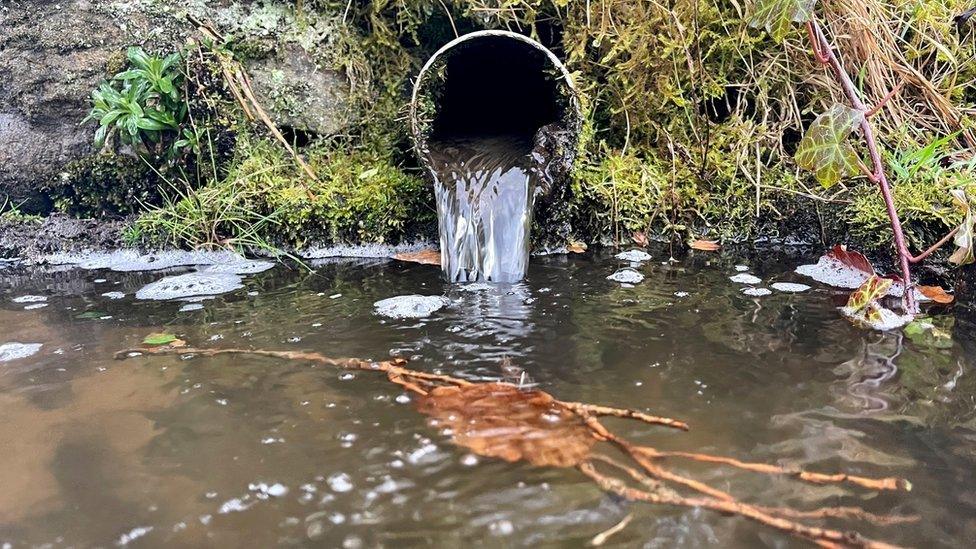
- Published13 January 2022
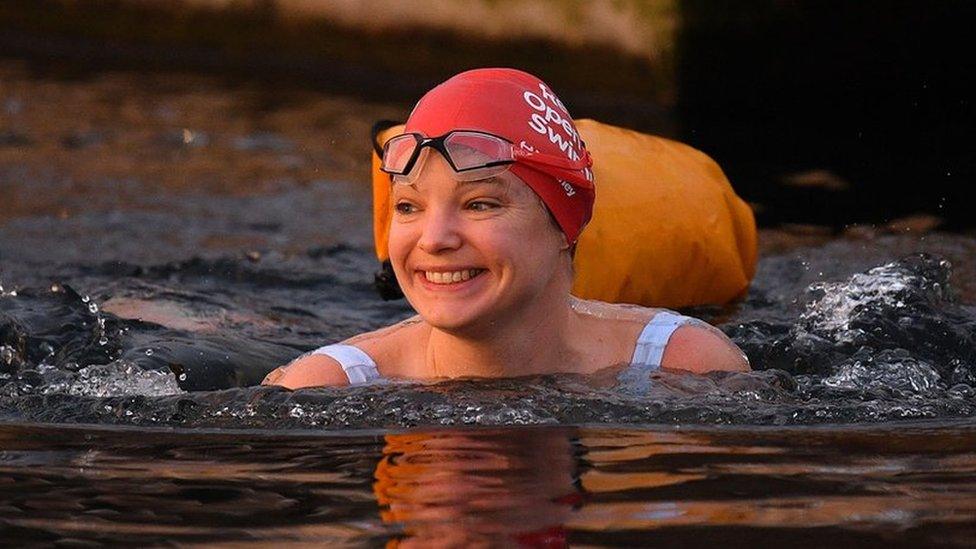
- Published12 April 2021
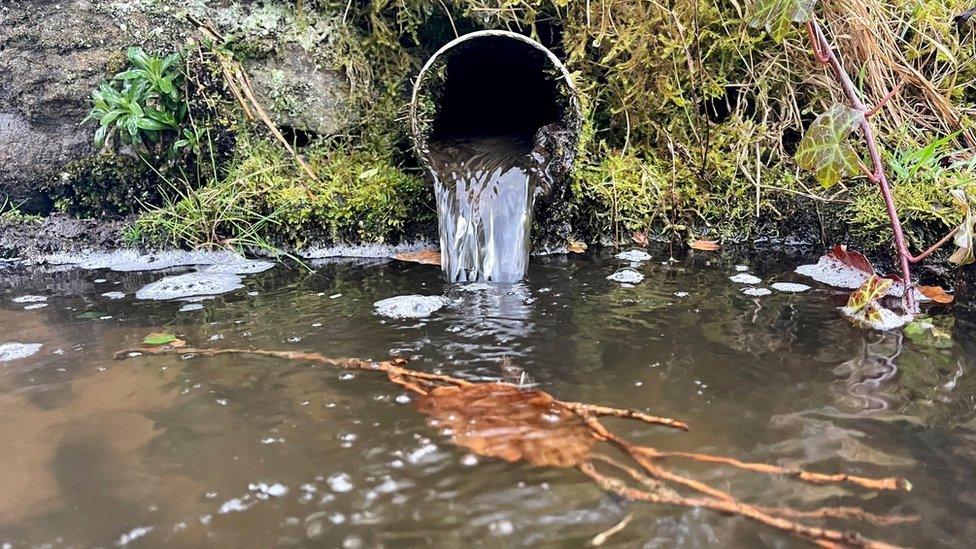
- Published30 October 2021
